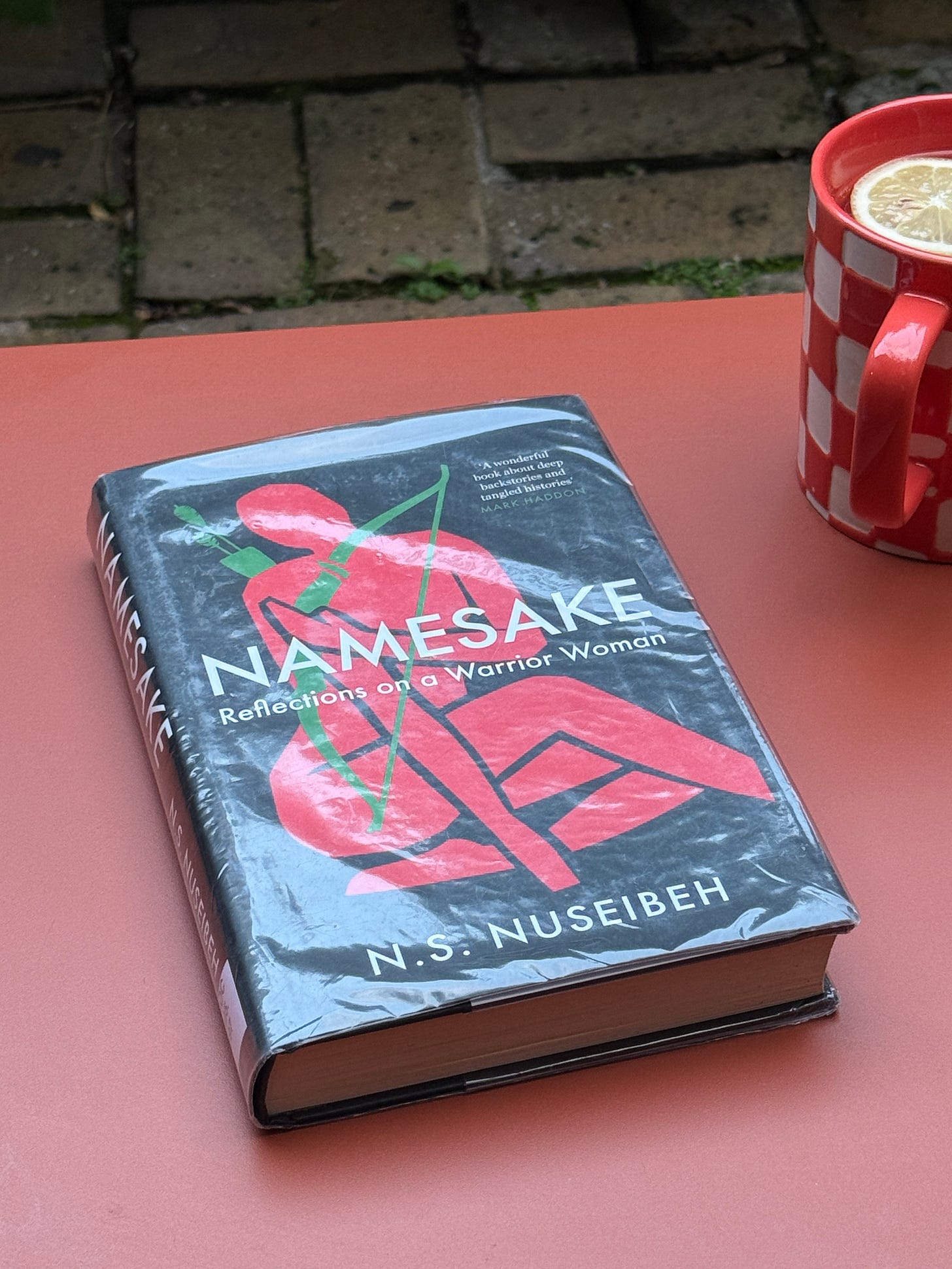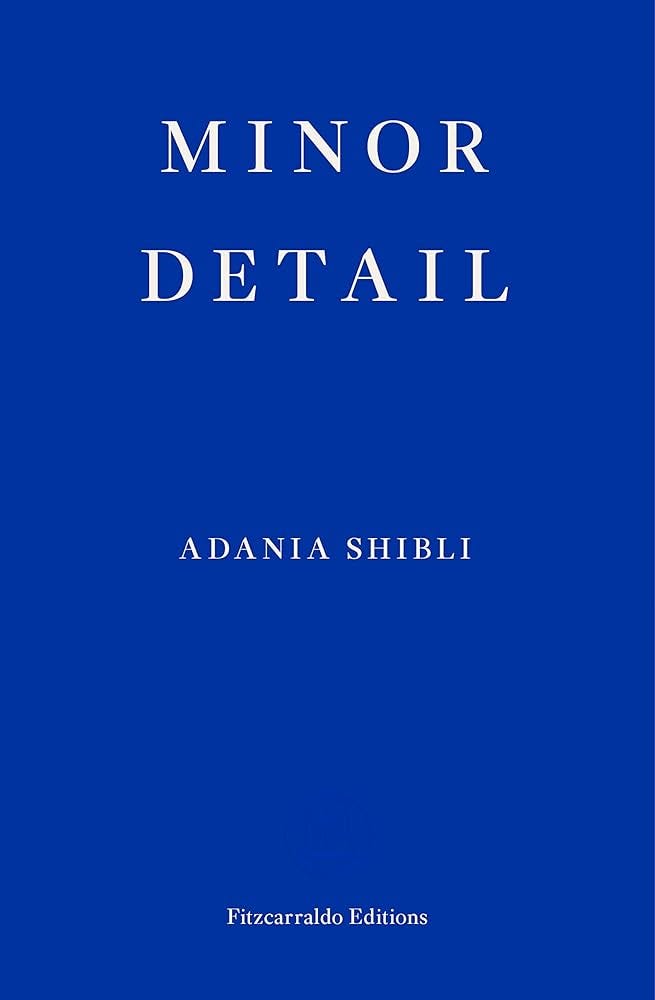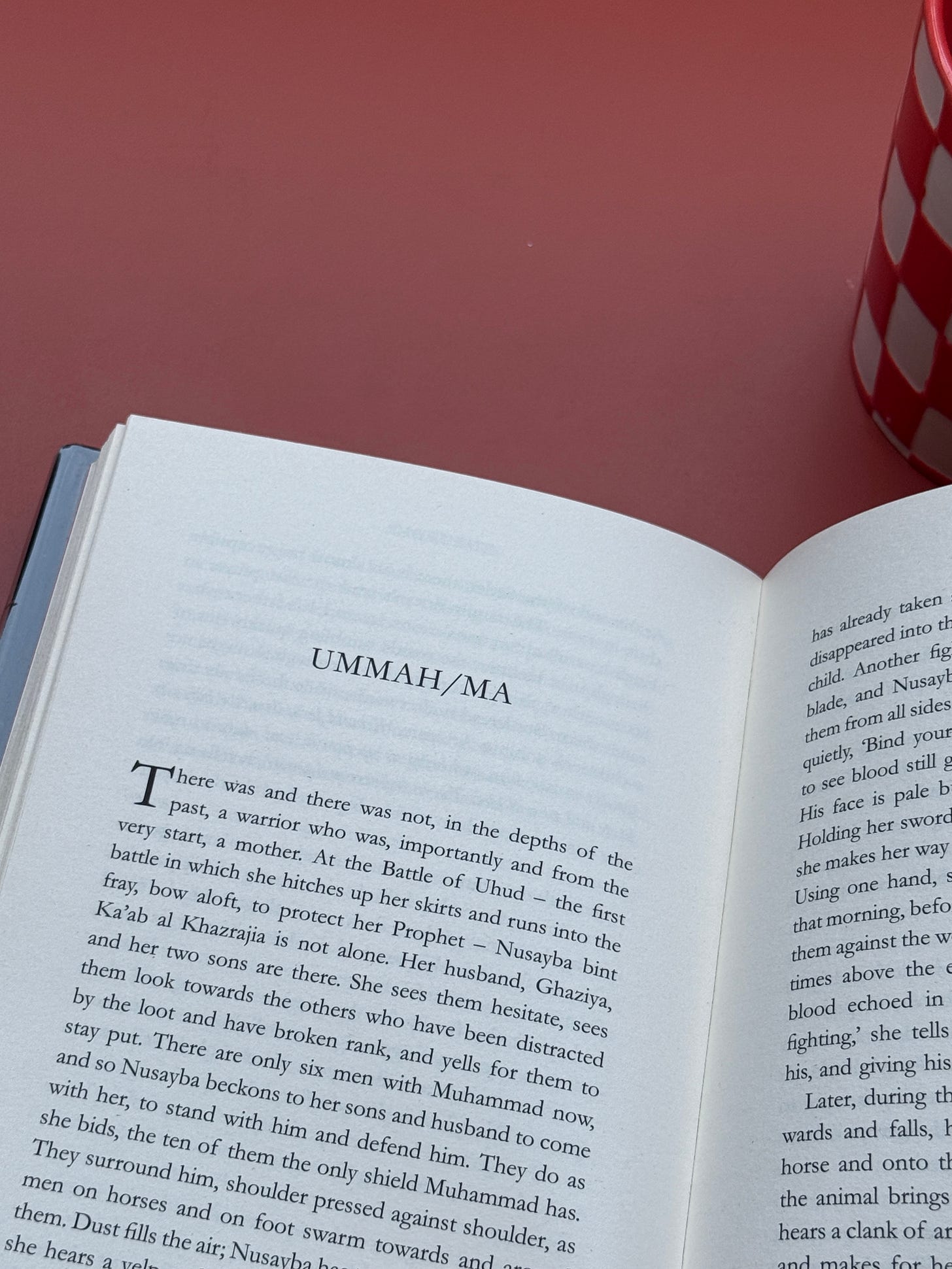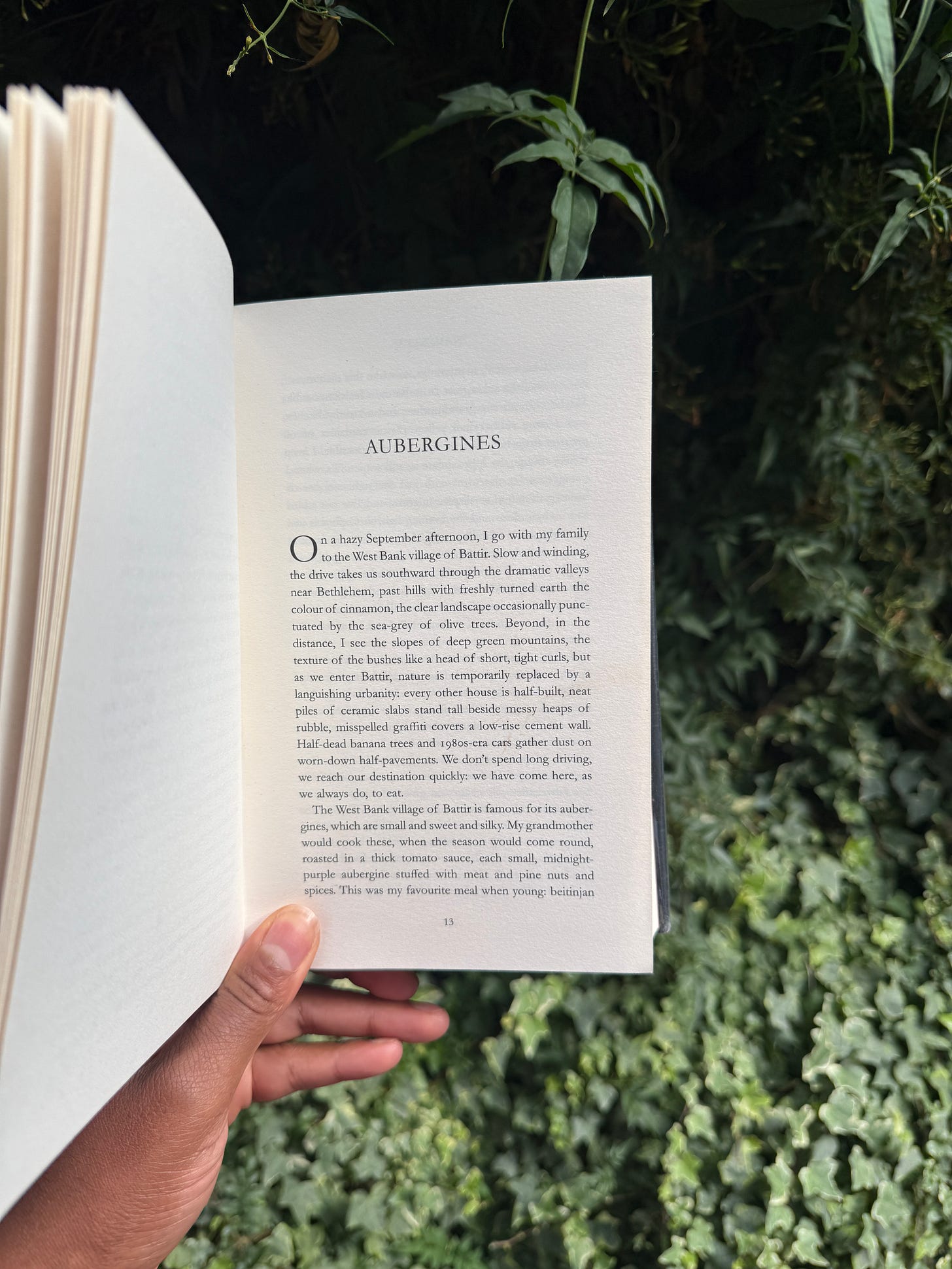There are no longer any words to describe the horrors of what's happening in Palestine right now - or rather what has been continuing to happen. I have said them all and to be quite frank, I am sick. I am sure you are too, or at least you should be. Abhorrent. Vile. How many ways can you express detestation? Even saying I’m lost for words at this point feels hollow.
It’s a warped reality we have found ourselves in. A world tightly stacked with overwhelm. I am finding it hard to breathe. Has it always been this way? I find myself repeating this mentally often these days. This ain’t the normal I signed up for. It’s bizarre that we are expected to carry on with our lives; pick up the kids, go shopping, celebrate. When in parallel timing, children are being blown to pieces everyday. Children. Crushed. Killed. Starved. And for what feels like fun at this stage. It’s only the fucking sadists who are laughing.
N.S Nuseibeh the author of Namesake states in the preface, “There is no point in mentioning the number of children killed; that number will have been dwarfed by the time you read this” - and there is no doubt that many more would have been killed as I write this review alone - this sentence even.
Namesake: Reflection on a Warrior Woman by N.S Nuseibeh is a book that presented itself to me last week at the library on our weekly visit to the local, a trip I usually take with my five year old son after school. After he excitedly thrusts several books my way within what feels like a mere minute upon entering, usually with a huge grin on his ever so slightly mischievous looking face, he then makes a beeline for the computers for half an hour and I have time to browse. As I float though the aisles loosely flirting with the new releases and older books for sale, I am acutely aware that I have absolutely no business checking out another book. The TBR pile on my bedside table has reached new heights recently. However, as many avid readers and ‘bookish’ folk are aware, this fact never matters. There is always room for one more.
I am ashamed to say that I have not read nearly as much work by Palestinian writers as I would have liked. Most of the knowledge I have of the occupation has come from online sources; blogs, articles and of course our common nemesis, Instagram. The literature I have read has been limited to one book so far, Minor Detail by Adania Shibli, a novella written in two parts. It’s a true story of the Nirim affair, a 1949 rape and murder of a young Arab Bedouin-Palestinian girl by Israeli soldiers, and the second part is a fictional modern day account of the life of a Palestinian woman who tries to investigate this incident.
Thankfully since reading Minor Detail back in 2023 my list has grown somewhat, and I look forward to reading more. Next will be +100 Palestine edited by Basma Ghalayini. An anthology, my most coveted format of literature, which entrusts twelve Palestinian authors to write about what they envision their homeland to be 100 years after the Nakba happened in 2048.
British-Palestinian writer and researcher N.S Nuseibeh has written an intimate offering about her experience as a woman from and growing up in Palestine, East Jerusalem, and the UK. She was born to a Palestinian father and British mother. The book is made up of a collection of essays that speak eloquently from the heart - stories from deep within her soul. It's enthralling - and heartbreaking, of course. It leaves you feeling incredibly touched, and a yearning to embrace the writer who has allowed us the privilege to come so close.
There is a sense of pride, and the strong connection she holds to her homeland; as she explains is the case for many Palestinians who have had to prove their worth to live - to exist, time and time again. Who have been ripped from their homes, and those whose martyred souls live in the soil.
The story of her experiences runs like silk throughout each page. The essay ‘Aubergines’ is about the ritual of food. Hundreds of hands of tradition; dollops of yogurt, fragrant herbs and ground meat ladened with spices. How the food we eat is connected to our heritage and when flavours feel like home. ‘Good Girls and Nasty Women’ reminded me that although the opposite of what we have been taught, women are allowed to feel anger. I join Jennifer Cox who brazenly titled her 2024 book Women are Angry; give yourself permission to feel all of you, not just the parts that are palatable to the patriarchy. I learnt eminently about Islam, the prejudice and heaviness that surrounds the religion, and its origins from before half of us were even whispers in the wind. My favourite learning, to no surprise of my own and possibly you too reader, involves words, the language of Arabic, its provenance, its surprising connections to the English language and slang, and how it has moved through tongues over time. The hands that write and the words that speak.
Nuseibeh doesn’t shy away from explaining not only her love for where she is from, her ancestry and the people who have raised her, but also her conflict, confusion and doubt in parts when it comes to identity, emotion and religion - from a 21st century standpoint. Niseibh, like all of us, is layered - she lives, she fears, she doubts, but she affirms herself by always returning home, emotionally even if she is unable to physically.
As we move through all 233 pages of the book by drawing stories from the Hadith, in each essay we see Nuseibeh reach out to her ancestor, Nusayba. One of the first women to convert to Islam in the seventh-century, and one of the companions of the prophet Mohammed. A warrior woman. Her existence was bold and violent. She fought in battles. She mothered, hurt, sacrificed and loved. She had flaws, kinks in her armor but it seems a strong sense of purpose and idea of who she was when her blood was still warm. I love the notion of linking struggle back to our ancestors to make sense of a world that feels confusing and contradictory. Nuseibeh speaks of her in awe. Proud to share her blood and uses her truth to guide her and us.
There is something more I could say but I want you to read the book - not just this review.
I hope you will feel as connected to the pages as I did. It's a journey of affirmation, anger, and lessons, some hard as I am somewhat faced with my own ignorance in parts - but worth every word.
Free Palestine.










